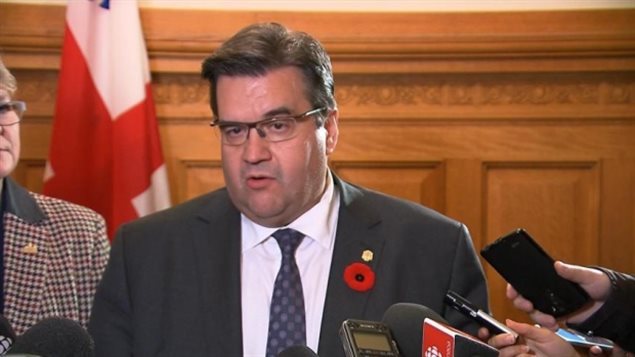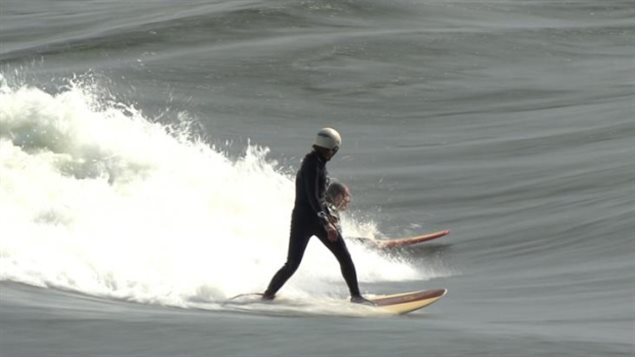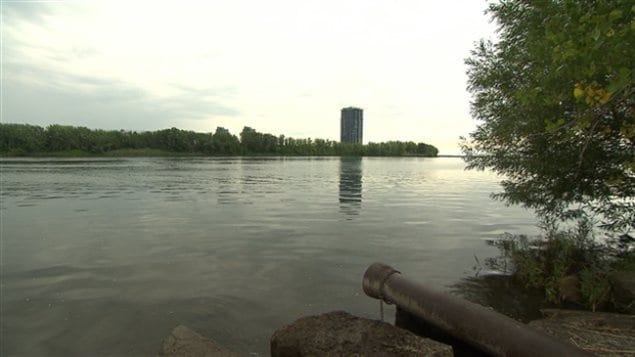
Montreal will be allowed to go ahead with its controversial plan to dump 8 billion litres of sewage into the St. Lawrence River, provided it meets several conditions imposed by the federal government by Dec. 5, Canada’s new minister of the environment and climate change announced Monday.
In a conference call from Paris, Catherine McKenna called the solution “far from ideal,” but said a planned discharge before winter presented fewer risks for long-term environmental damage than an accidental and uncontrolled discharge due to infrastructure failure, which is in need of urgent repairs.
Municipal authorities say they need to discharge a third of the sewage produced by the city’s 1.65 million inhabitants into the river in order to conduct urgent maintenance work on a major sewage collector pipe and a snow chute.
“All I can say is, I inherited this file on the first day (as minister last week). Things were not conducted in a way I would have hoped for,” McKenna said. “We did the best we could given the particular situation.”
Conditions imposed
McKenna said Montreal authorities must improve the city’s emergency management plan for the dump. She wants an improved visual surveillance of the discharge plume and a more comprehensive cleanup plan for affected areas.
McKenna also wants the city to monitor the impact of the wastewater discharge on the river’s ecosystem before, during and after the discharge.
And to make sure that similar cases do not happen in the future, McKenna said she wants a comprehensive review of the process leading up to the city’s decision to dump the raw sewage.
Montreal Mayor Denis Coderre told reporters the city had no problem with the conditions, will comply with them quickly and begin the discharge within a matter of days.
“For me, it’s positive, constructive,” Coderre said. “We totally agree with the fact we have to collect more data for the future.”
The city has scheduled a technical briefing on plans for the discharge at a press briefing Wednesday morning.

Mitigation measures
Montreal’s controversial decision drew sharp criticism from environmental groups and concerned citizens, and made international headlines.
Former Conservative Environment Minister Leona Aglukkaq signed a ministerial order in mid-October, banning the sewage release pending an independent scientific review of the effect on the river’s ecosystem.
On Friday, the scientific panel released its report saying there was “little likelihood” the raw sewage release would have an effect on fish reproduction.
The report recommended improvements to the city’s plan, including better monitoring of the discharge plume, the implementation of an emergency plan for cleaning affected areas downstream, and deploying mobile wastewater treatment units to hospitals or industries where potentially toxic discharges could enter the sewer system. It concluded the risks associated with waiting were worse than the city’s plan to dump the untreated sewage into the river.







For reasons beyond our control, and for an undetermined period of time, our comment section is now closed. However, our social networks remain open to your contributions.